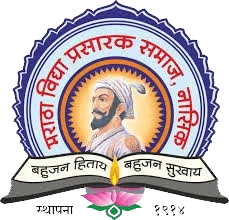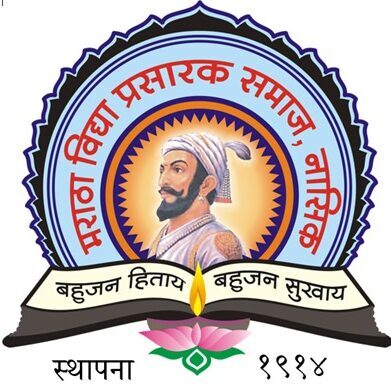Year of Establishment: 1996-97
Programs Offered: B.Sc. Chemistry/ M.Sc. Analytical Chemistry
Pattern of Teaching Learning and Evaluation: CBCS
| F.Y./ S.Y. /T.Y. B.Sc./M.Sc. Analytical Chemistry | ||||||||||||||||||||
|
About the Department
The Department of Chemistry was established in 1996 and is one of the biggest departments of the College. The department has a highly experience and qualified staff. The faculty members are actively involved in research activity and have publications in reputed international and national journals. Most of them completed Minor Research Project funded by UGC and SPPU, Pune. Every year students passed with good marks and get admitted in various PG courses in the reputed institutes. Apart from this Students are encouraged and motivated to take parts in various activities like Chemistry quiz, Avishkar competition and Chemiad examination.
Department of Chemistry has fully equipped laboratory with separate store room for chemicals and have instruments like U.V. Visible Spectrophotometer, Vacuum evaporator, pH-meter, Potentiometer, Refractometer, G.M. Counter, and Colorimeter etc. Laboratory have various equipment’s like Distillation assembly, U.V. Chamber, Hot air oven, Refrigerator, Hot air oven, Heating mantle, Oil bath, Hot plates, Magnetic stirrers, Water bath assembly and all other glassware and equipments required for regular undergraduate practicals. Department have LCD Projector and computers internet facility. The department also has departmental library.
Job Opportunities for Chemistry students
Chemistry graduates have great demand in most of the chemical and pharmaceutical industries in India. Some of them are
- Pharmaceuticals/ Drugs industry
- Petrochemical industry
- Food and Beverage Production industry
- Paint, plastics, coatings, industry
- Cosmetic and household product industry
- Pulp and paper industry
- Metallurgical in industry
- Research and development laboratories.
- And many other
Apart from this, students can be recruited as a teacher in School and Colleges after completion of other required qualifications.
Vision
Upliftment of the rural and tribal area and providing all the basic facilities so that they can get knowledge in better environment for developing their future very well.
Mission
To achieve academic excellence by imparting quality knowledge and to develop socially responsible citizens with ethics and morals
Goals
- To improve the awareness about science education and observing the consistency among the students during their practical as well as theory sessions.
- A Chemistry graduate will possess a strong foundational knowledge of modern inorganic, organic, analytical, physical, and biological chemistry.
- To make the students proficient in applying modern laboratory methods and technological tools to the studies of chemical systems and skilled in the methods of scientific investigation
- To motivate and encourage students belonging to weak socio-economic background for taking highereducation.
- Enhance the chemistry knowledge and Building confidence among the students.
- To motivate and prepare the students to pursue higher studies and to develop sustainable innovativesolutions for the nation and become honest and hard worker citizens.
- To make the students able to think as chemists, critically evaluating scientific information and solvingscientific problems.
Programme Outcomes (POs)
First Year M. Sc Analytical Chemistry
| SN | Statements |
| 1 | Understood the terms, theories, assumptions, methods, principles, theorem statements and classification |
| 2 | Resolution of the problem by using theories and practical knowledge. |
| 3 | Students are able to carrying projects and research oriented skills in local area. |
| 4 | Interested for the studies and field-based situations. |
| 5 | Able to analyze and interpret ideas, evidences and experiences with learned scientific reasoning. |
| 6 | Application of the subject facts that can be applied for the personal and social development. |
| 7 | Use various references to retrieve and evaluate about the subject related information. |
| 8 | To improve the practical knowledge in rural development. |
| 9 | To provide the knowledge on farm production practices. |
| 10 | Improve their skills and abilities in subject related activities. |
| 11 | To make students competitive in higher education. |
Programme Specific Outcomes (PSOs)
First Year M. Sc Analytical Chemistry
| SN | Statements |
| 1 | Demonstrate a comprehensive knowledge of all disciplines. |
| 2 | To assess and evaluate facts, claims and arguments using their scientific knowledge |
| 3 | To define a problem, analyze, interpret and draw conclusion by planning, implementing and reporting the results of an experiment. |
| 4 | To access, evaluate and apply a variety of useful sources |
| 5 | To participate in multicultural society and communicate the subject knowledge for the betterment of society |
| 6 | To acquire knowledge and skills including “Learning how to learn” that are necessary in learning activities throughout life |
Course Outcomes (COs)
First Year M. Sc Analytical Chemistry
Semester I
Subject: – CHE- 501, Physical Chemistry I [Section I & Section II]
| SN | Statements |
| 1 | Students should be able to remember the concepts of thermodynamic parameters, quantum mechanical postulates, rate laws of chemical reactions and computation of macroscopic properties of matter. |
| 2 | Students should understand the basics like state function and path function, Schrodinger wave equation, kinetics of fast reactions, partition functions and ensembles. |
| 3 | Students should be able to apply the knowledge of various quantum mechanical methods to determine the different molecular properties and built the concept of the relation between thermodynamics and quantum mechanics |
| 4 | Students should be able to analyze the rates of various chemical reactions both theoretically and experimentally and also observe the effect of catalyst and determine energies of activation of such reactions. |
| 5 | Students should be able to evaluate variation of thermodynamic parameters for multi component systems and their variation with other extensive properties, Schrodinger wave equation and its application to hydrogen and hydrogen like atoms. |
| 6 | Students should be able to create the solutions to avoid excess use of energy in chemical reactions by applying their knowledge of thermodynamics and chemical kinetics. |
Subject: – CHE-502, Inorganic Chemistry-I
Section I-Molecular Symmetry and its applications to Inorganic chemistry
| SN | Statements |
| 1 | Define symmetry elements and symmetry operations, classes, properties of a group, group multiplication table, etc. |
| 2 | Classify symmetry elements, point group, Group, sub-group and classes. |
| 3 | Use wave function as basis for determination of irreducible representations and the Great Orthogonality theorem and its consequence. |
| 4 | Solve problem based on point group, matrix representation and character table |
| 5 | Construct character table of various point group |
| 6 | Justify which can take part in bonding on the basis of SALCs and point group of molecules. |
Subject: – CHE-502, Inorganic Chemistry-I
Section-II: Chemistry of Main Group Elements
| SN | Statements |
| 1 | Define electron deficient, electron precise and electron richspecies, Pseudohalogens, Oxoacids and Oxidation state. |
| 2 | Describe special properties of fluorine, Nitrogen activation, Oxo acids of nitrogen, sulphur and phosphorous, synthesis and structure of xenon fluorides. |
| 3 | Explain term metal sulfides, selenides, tellurides, polonide, inter-halogens, Halogen oxides, Graphene, fullerenes and carbon nanotube. |
| 4 | Determine Oxidation states of nitrogen and their interconversion and application of crown ether in extraction of alkali and alkaline earth metal. |
| 5 | Differentiate between diamond and graphite, Pseudohalogens and interhalogens. |
| 6 | Classify the hydrides, borides and oxyacids and draw their structure |
Subject: – CHEPIA-503, Organic Chemistry-I
(Aromaticity, Stereochemistry and Reagents)
| SN | Statements |
| 1 | Understand the concepts of aromaticity, stereochemistry, and oxidation-reduction reactions |
| 2 | Learn the concepts of stereochemistry. |
| 3 | Predict the product and mechanism of the reactions. |
| 4 | Advance knowledge of various stereochemical aspects. |
| 5 | Apply the concepts of oxidations and reduction to solve the advance problems. |
| 6 | Develop problem solving ability |
Subject: – CHE- 504, Physical Chemistry Practical I
| SN | Statements |
| 1 | Students will grasp the concept of reaction rate and its significance in Chemical Kinetics. |
| 2 | Students will learn how to use experimental data to deduce rate laws and rate constants. |
| 3 | Students will be familiar with the fundamental principles of colorimetry and spectrophotometry including Beer’s law, Lambert- Beer’s law and the relationship between absorbance and concentration |
| 4 | Students will able to operate the instruments like spectrophotometer and colorimeter |
| 5 | Students will be able to determine the densities of the solutions and can calculate molar volumes |
Subject: – CHE-505, Inorganic Chemistry Practical-I
| SN | Statements |
| 1 | Prepare solution of required conc. and handle the laboratory equipment properly |
| 2 | Perform experiment accurately and able to perform calculation |
| 3 | Explain experiment and principal of experiment in detail. |
| 4 | Perform calculations and discuss results and write conclusions of the experiment |
| 5 | Apply knowledge to a) design experiment for given aim or modify experiment to enhance results. b) to find out lacuna in experimental procedure. |
| 6 | Solve problem/ numerical depending on given experimental data / information. |
Subject: – CHE-506, Organic Chemistry Practical I
| SN | Statements |
| 1 | Understand the theoretical aspects behind separation, purification and synthesis of organic compounds. |
| 2 | Acquire the experimental skills for separation, purification, identification and synthesis of organic compounds |
| 3 | Design experimental set up for performing the organic reactions |
| 4 | Monitor the organic reactions. |
| 5 | Describe the mechanistic aspects of organic reactions. |
| 6 | Develop problem solving ability. |
Subject: – CHEPIA-507 (D), Basic Organic Chemistry
| SN | Statements |
| 1 | Understand the concepts of chemical bonding, various structural effects, acids and bases, and types of reactions |
| 2 | Basic knowledge of aliphatic and aromatic substitutions, elimination and addition reactions |
| 3 | Understand and identify the types of organic reactions. |
| 4 | Write the mechanism of aliphatic and aromatic substitutions, elimination and addition reactions and oxidation-reduction reactions |
| 5 | Solve the problems involving multiple steps. |
| 6 | Develop problem solving ability of the students |
Subject: – CHE-508, Research methodology
| SN | Statements |
| 1 | Develop a comprehensive understanding of different research methodologies and their applications in mathematics. |
| 2 | Cultivate critical thinking and analytical skills necessary for identifying research problems and formulating research questions. |
| 3 | Provide practical experience in designing experiments, collecting and analyzing data, and interpreting research results. |
| 4 | Foster effective communication skills for presenting research findings orally and in written form. |
| 5 | Promote ethical research practices and awareness of responsible conduct in mathematical research |
| 6 | Develop problem solving ability. |

